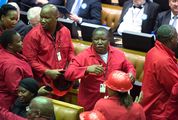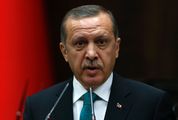HAS the South African state been "captured", as critics of the government charge in respect of the relationship between the now notorious Gupta family and President Jacob Zuma?
This past week has seen a host of hints, half-facts, suggestions and allegations emerge. Even taken together, the jury is still out on these, but the situation is looking increasingly ominous.
In a formal sense, "state capture" is something more serious than a few contracts being funnelled to friends of those in power, no matter how despicable those acts might be in their own right.
According to the dictionary definition, state capture is a type of systemic political corruption, in which private interests significantly influence a state’s decision-making process to their own advantage through back channels.
It is not necessarily illegal, because to found a case of corruption in most jurisdictions, the outcome is normally in doubt. Hence, the act of corruption is aimed at influencing a decision in the favour of the corrupter that might otherwise go against him or her. So, in the classical situation, a bidder for a contract is uncertain about whether he will win the bid, and tries to influence those awarding the bid in his favour.
State capture is different. The chilling aspect is that the outcome is not unknown, because the state has already been captured.
It’s a fine distinction, but an important one.
Take some of the allegations against the Gupta family and measure them against these criteria, and it becomes clear that the formal notion of "state capture" has not been achieved.
For example, the Financial Times has alleged that shortly before President Jacob Zuma fired finance minister Nhlanhla Nene, members of the Gupta family met with Deputy Minister of Finance Mcebisi Jonas and had asked if he were interested in the job.
The Sunday Times has reported that Mr Jonas was offered the job on two conditions: that he fire four members of the Treasury, and support a contentious nuclear-procurement programme.
The Treasury and the National Development Plan have warned that the huge nuclear plan is unaffordable. But it might suit the Guptas’ business interests.
The problem is that in neither case were the people making the allegations named.
Spokesmen for the Gupta family not only deny that the offer was made, but deny that the meeting ever happened.
In an odd way, the very wide ambit of SA’s anti-corruption legislation is a complicating factor.
In any event, the furious denials that followed the Jonas allegation were placed in question yesterday, when another parliamentarian, Vytjie Mentor, mentioned that she too had been offered a Cabinet job at the home of the Guptas, in this case as the minister for public enterprises.
Once again, the offer was made conditionally, with a clear business angle attached.
Some influence on the government by the Gupta family is obvious. One example is the hugely expensive "business breakfast" functions held under the auspices of The New Age newspaper, owned by the Guptas, and at which various ministers and senior African National Congress figures often appear.
For all the media interest in the Gupta family, they are small players in South African business. But as the mist clears, it becoming obvious that there have at least been attempts at the step preceding state capture.
Mr Zuma has been questioned by his own party about his family members’ relationships with the Guptas, so the concern is not confined to opposition politicians.
It is time the president and his family formally distance themselves and SA’s institutions from the Gupta family. The Guptas say they are not interested in politics. Mr Zuma should take them at their word.





















Change: 1.19%
Change: 1.36%
Change: 2.19%
Change: 1.49%
Change: -0.77%
Data supplied by Profile Data
Change: -0.19%
Change: 0.58%
Change: 1.19%
Change: 0.00%
Change: 0.29%
Data supplied by Profile Data
Change: 0.53%
Change: 0.54%
Change: 0.18%
Change: 0.44%
Change: 0.12%
Data supplied by Profile Data
Change: -0.24%
Change: -1.32%
Change: -0.57%
Change: -0.51%
Change: -0.07%
Data supplied by Profile Data